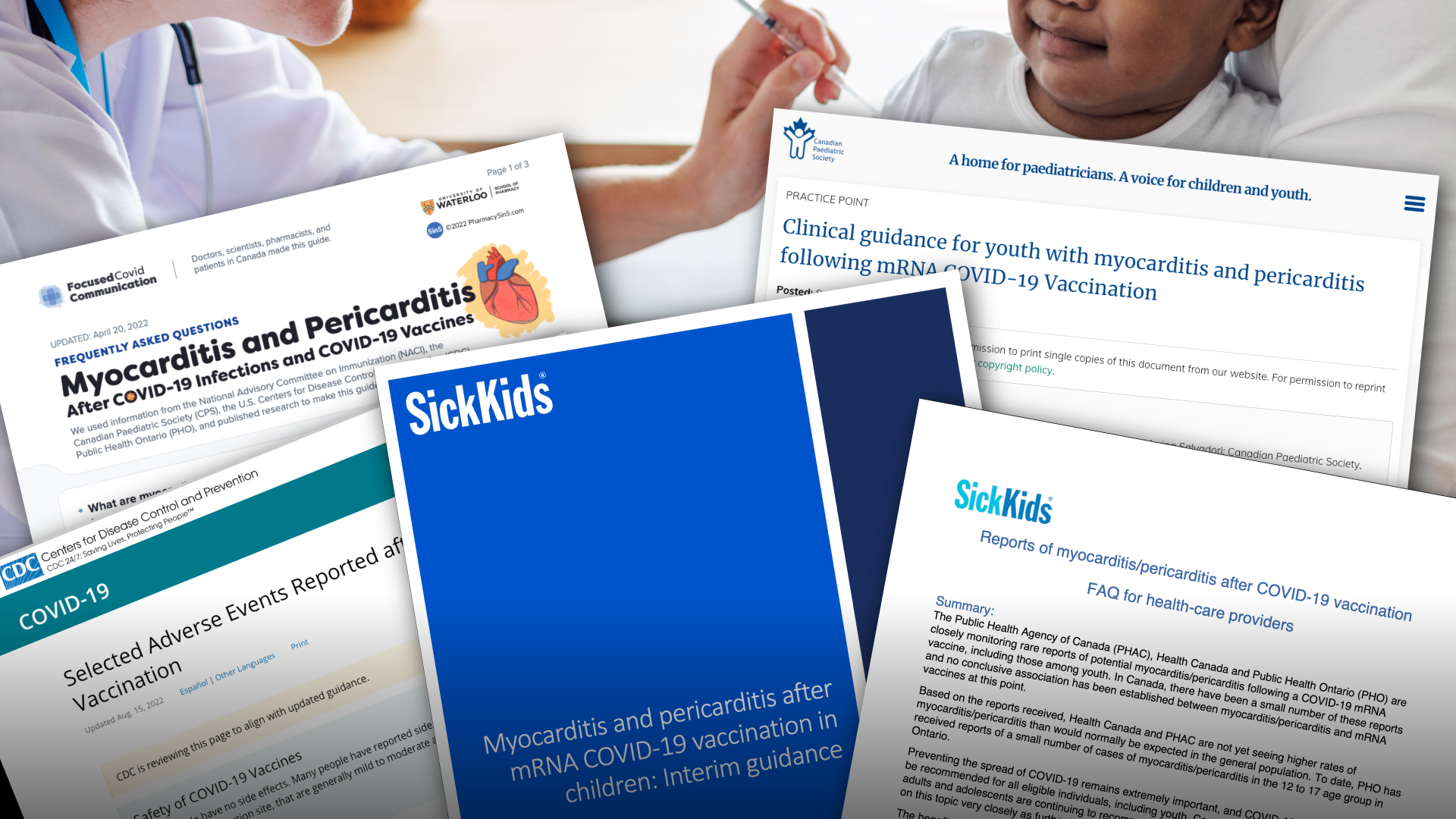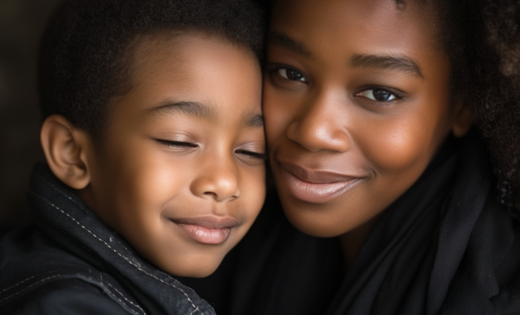on
BY SIMONE J. SMITH
My heart goes out to all parents who have made or are going to make the tough decision to vaccinate their children against Covid-19. Parents that I have spoken to say that making vaccination decisions was a complex process. They had to balance their beliefs about the benefits versus the potential risks. Some mentioned feelings of anxiety about making the wrong decision.
What most parents are looking for is peace of mind – a sense of wellbeing and reassurance – knowing that their children are safe. Some parents are a little suspicious and nervous that this vaccine was produced and distributed so quickly. They feel that the longer a vaccine has been available, the safer it feels to them. They spoke of being reassured by knowing a vaccination had been used for many years.
Then there were other parents who felt strongly about following the guidelines that our world governments have presented to us; facts and statistics touted by mainstream media that have made them believe that vaccinating their child with an experimental vaccine is the right thing to do. I am sympathetic and understanding of both sides of this argument. There is a plethora of information that is pushed out to us, and we must decide what is best for the people we love the most.
What I want to present to you today is the other side of this discussion, the side that will show research and data cautioning parents on making a hasty decision to inoculate their child. The point of this article is not to sway your decision, but to provide perspective. Are you ready? Please navigate this article with an open mind, and research the information before making a decision.
In late June, the United States became the first country in the world to grant Emergency Use Authorization (EUA) for Pfizer’s and Moderna’s COVID vaccines for toddlers as young as six months. The U.S. Food and Drug Administration (FDA) issued the EUA on June 17th, 2022, and the very next day, the Centers for Disease Control and Prevention (CDC) recommended all toddlers get the shot as soon as possible.
What continues to be ignored, and not reported is the fact that every day patients are suffering from life-altering changes after receiving the COVID-19 vaccination. Unfortunately, many have not connected their symptoms to the shots. 223 million fully vaccinated Americans have reported serious vaccine reactions. As of July 22nd, 2022, the U.S. Vaccine Adverse Events Reporting System, or VAERS, received more than 1.3 million reports of COVID-19 vaccine injury, including 29,790 deaths.
What is troubling are the reports that have come out about children ages six months to 17 years old. VAERS reported the following “adverse events” through July 22nd, including foreign and domestic reports:
- 132 deaths (US 56)
- 484 permanent disabilities
- 4,106 hospitalizations
- 1,868 myocarditis diagnosis
- 52,654 total injuries
Data from the U.S. and five other countries show minimal risk of COVID-19 disease to children (0.17 deaths per 100,000 cases), according to an article in BMJ Journal of Medical Ethics. Given that, it concluded, “COVID-19 vaccines are still very likely to be in the best interest of the elderly and more vulnerable, but not of children.”
Let’s take a look at specific vaccines.
The Moderna shot was only 51% effective against symptomatic Omicron infection in 6-month-olds to 2-year-olds, and a mere 37% effective in 2- to 5-year-olds. This is lower than what is expected for vaccines, which makes authorizing them for this age group even more irrational. Why use such an experimental injection with such poor effectiveness in children who aren’t at grave risk of death from the infection in the first place?
The Pfizer vaccine’s effectiveness “Declined rapidly for children, particularly those 5-11 years,” an Omicron study by New York State officials found, with “low protection” one month after two doses. At thirty-five days post-inoculation, efficacy went negative for 5- to 11-year-olds, meaning an increased likelihood of infection. Even more troubling, is that vaccinated toddlers in Pfizer’s trial were more likely to get severely ill with COVID than those who received a placebo. I WANT YOU TO READ THIS AGAIN!
Most kids who developed multiple infections during the trial were vaccinated. This warranted more investigation since experimental vaccines for other diseases sometimes increase susceptibility to infection.
A new Singapore study found efficacy of two doses was 48.8% just one to two weeks after dual vaccination; it declined to 25.6% at two months, meaning only one in four infections were avoided. Among vaccinated children, 22 unspecified “serious adverse events,” and three with COVID-19 were admitted to intensive care units. What is interesting is that among the unvaccinated, no children suffered vaccine injuries, and just one unvaccinated child was admitted to the ICU.
In February, the Archives of Pathology & Laboratory Medicine reported on two teenage boys who died “suddenly and unexpectedly in their sleep without resuscitation” three and four days after their second Pfizer vaccine.
“Neither boy complained of fever, chest pain, palpitations, or dyspnea (laboured breathing),” two physicians wrote, warning of the atypical nature of the heart inflammation, called myocarditis that killed these boys. The CDC then responded by asserting the boys had likely died of other causes.
What CDC has been unable to explain are the many other sudden deaths that have occurred in children:
- A Georgia boy, 16, who suffered “headache and gastric upset over two days following second dose. Then I felt fine. Found the following day dead in bed.”
- A Texas girl, eight, who suffered multi-system inflammatory disease seventy days post-vaccination, with carditis in her heart and inflammation in the intestines, lungs, skin, and liver. Her belly distended and lungs filled with fluid, and she went to ICU. “Her heart stopped beating right there.”
- A Wisconsin girl, 16, suffered heart failure and pulmonary embolism nine days after her second dose; she died two days later, with an oral contraceptive possibly contributing.
- A Colorado boy, 15, died of heart failure one day after his first dose
- A Florida boy, one year old, suffered “increased body temperature, seizure, death” two days after his first dose.
- An Iowa girl, five who had an unspecified “complex” medical history, stayed overnight in a hospital as a precaution after the first dose. Two days later, “she was found pulseless and not breathing” at home.
Parents of these children have been left without answers; they trusted their physicians and their government, and they lost their children. That is why what I am going to report on next needs to be taken very seriously…
“It would normally be in the best interests of the child to have contact with his father, but it is not in his best interest to have contact with him if he is unvaccinated and opposed to health measures in the present epidemiological context.”
Judge Jean-Sébastien Vaillancourt (December 23rd, 2021)
April 14th, 2022 9:12 p.m. EDT
Parents in Quebec are expressing their concern over a recently passed child protection bill, which allows the state to override the principle of parental primacy and natural ties.
Quebec’s Health Minister Lionel Carmant introduced Bill 15 in December 2021. It was adopted unanimously in April 2022 in the Canadian provinces’ National Assembly: 115 votes in favour and none against. This bill promises to prioritize the interests of children over all other considerations, including the interests of parents.
The new law will facilitate the placement of children into foster care, overhauling the principle of parental primacy, which favours keeping children within their biological families — even in cases of neglect and abuse. It will also ease confidentiality rules, allowing personal information to be shared about children to be shared among authorities and caregivers.
Some argue that the overriding of parental primacy could set a dangerous precedent and give the state too much power over children, and this was see when a Superior Court judge temporarily suspended the child visitation rights of a Quebec man after the court heard he was unvaccinated and opposed the province’s COVID-19 health regulations.
The mother sought to have all access to the child suspended for the father, on the grounds she had recently learned that he was unvaccinated and, according to the judgment, a “conspiracy theorist” and “anti-vaccine.”
The father said he was unvaccinated and had “reservations” about vaccines but told the court that he respected health regulations and rarely left his home. However, the child’s mother produced excerpts from the father’s Facebook page containing anti-vaccine messaging and articles.
It was ruled that under the circumstances, it was not in the interest of any of the three children that (the unvaccinated father) have access to them.
It is scary that now the government has extended their control into the homes of families under the guise of child protection. Bill 15 is necessary in the case of abuse and neglect, but not administering a vaccine to your child should not fall under this bill, and at this time it does.
When will it stop? It all depends on us, the citizens of Canada. We are in control, not the officials that we have elected. As citizens, we need to remember that.
Stay in the loop with exclusive news, stories, and insights—delivered straight to your inbox. No fluff, just real content that matters. Sign up today!
We, as humans are guaranteed certain things in life: stressors, taxes, bills and death are the first thoughts that pop to mind. It is not uncommon that many people find a hard time dealing with these daily life stressors, and at times will find themselves losing control over their lives. Simone Jennifer Smith’s great passion is using the gifts that have been given to her, to help educate her clients on how to live meaningful lives. The Hear to Help Team consists of powerfully motivated individuals, who like Simone, see that there is a need in this world; a need for real connection. As the founder and Director of Hear 2 Help, Simone leads a team that goes out into the community day to day, servicing families with their educational, legal and mental health needs.Her dedication shows in her Toronto Caribbean newspaper articles, and in her role as a host on the TCN TV Network.













